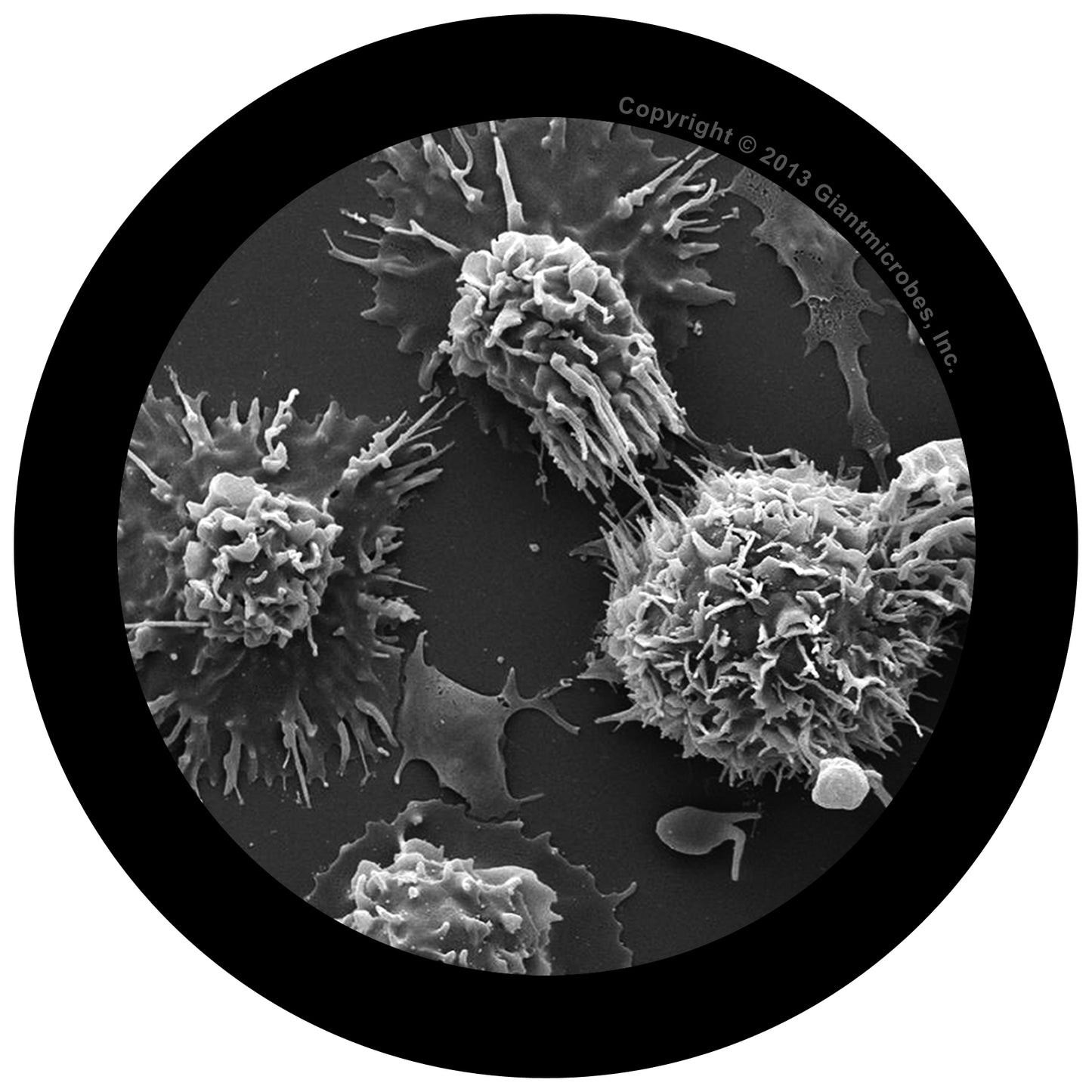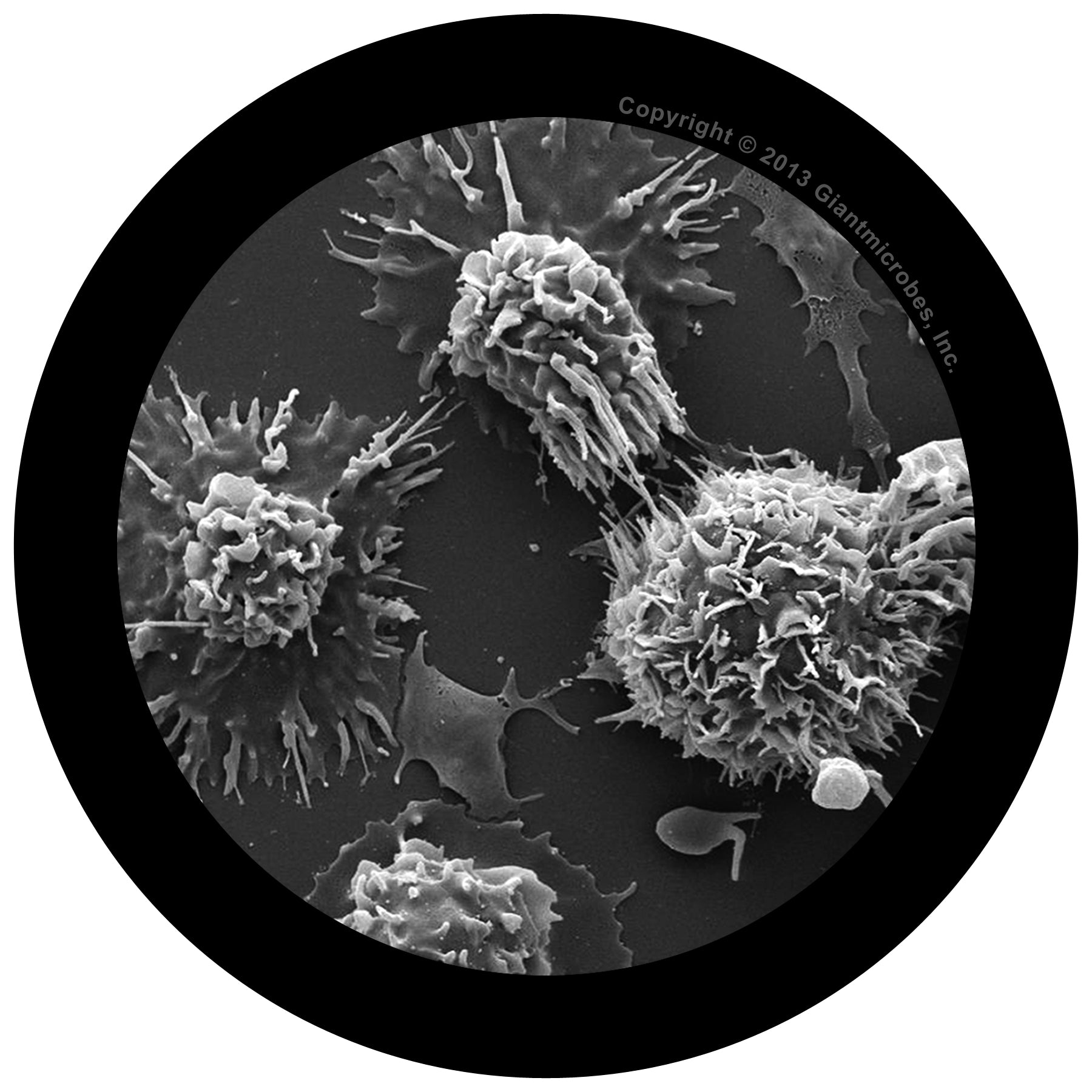Prostate Cancer (Malignant Neoplasm)
Prostate Cancer (Malignant Neoplasm)
Couldn't load pickup availability
Our Cancer cell can be cured by turning it inside-out!
- Learn about prostate cancer in a unique, and unforgettable way
- Useful reminder to get regular screenings
All About Prostate Cancer (Malignant Neoplasm)
FACTS: Prostate cancer is one of the most common cancers among men. Fortunately, prostate cancer primarily impacts older men – and as many prostate cancers are slow-growing, monitoring and observation can often suffice until mortality arrives via senescence.
But even though prostate cancer is rare in younger men, those with close relatives who have had the disease – particularly at a young age – are at elevated risk, as are black men, whose incidence rate is up to 50% higher than Caucasians.
The exact causes of prostate cancer are unknown, though environment, diet, activity levels, and heredity undoubtedly contribute. (In fact, incident rates for blacks in Africa are substantially lower than rates in Western countries, suggesting a strong role for environmental and dietary factors.)
Physical warning signs of prostate cancer include urination difficulties such as increased frequency or difficulties starting or stopping, as well as the presence of blood in the urine. Pain in the back can also be indicative, if the cancer has spread.
Elevated prostate-specific antigen (PSA) levels in blood tests can also provide a warning indicator before any symptoms occur. However, PSA levels can be affected by the non-cancerous enlargement of the prostate that many men experience as they age – as well as certain medications – so false positives and false negatives from testing are not uncommon. Where appropriate, follow-up biopsies can be performed to provide a more definitive diagnosis.
| WHERE IT LIVES | Our bodies are made of billions of cells that are programmed to grow, divide, and die over time. When any cells don’t die, it can cause cancer. Prostate cancer occurs when the uncontrolled cell growth happens in the prostate, a walnut-sized gland found in reproductive system in males. It’s caused by specific changes in the DNA of prostate cells that can be inherited or acquired over time. |
|---|
| SYMPTOMS | Prostate cancer only occurs in men and can go without symptoms for years! It causes frequent, painful, and difficulty urinating. If left untreated, it can cause enlarged glands and blood in the urine. |
|---|
| CURE | Treatment varies with each individual, but most people undergo a combination of treatments, such as surgery with chemotherapy and/or radiation therapy. |
|---|
| HISTORY | The first documented description of cancer was written by Edwin Smith Papyrus around 3000 B.C. He noted that this was a disease with no cure! |
|---|
| FASCINATING FACTS | Tomatoes and watermelon are good sources of lycopene, a natural antioxidant found in plants that lowers risk of cancer. Being healthy never tasted so good! Famous people who died of it: 1967: Langston Hughes, an American author and leader of the Harlem Renaissance, died of prostate cancer. 1993: Frank Zappa, American rock star in the late 1960’s, died of prostate cancer. |
|---|








